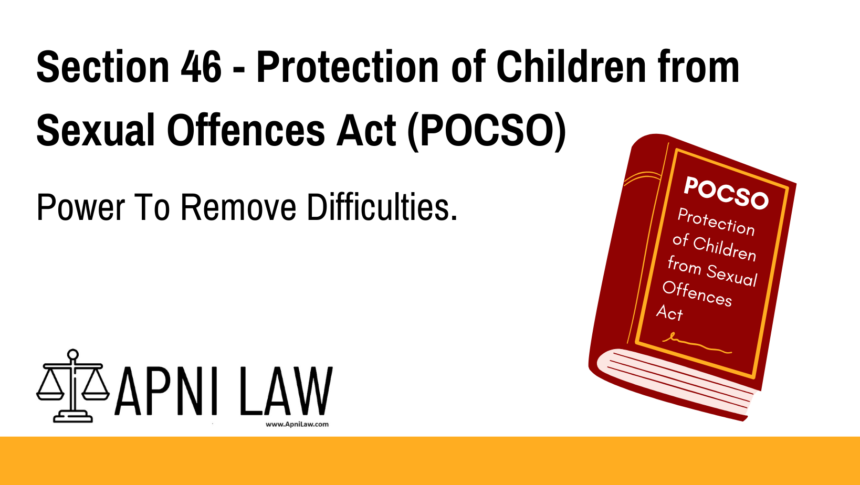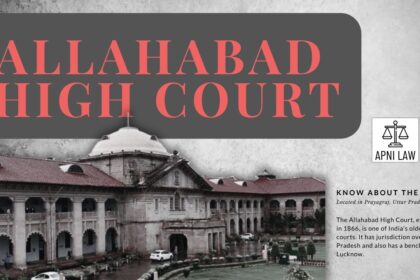Code: Section 46
(1) If any difficulty arises in giving effect to the provisions of this Act, the Central Government may, by order published in the Official Gazette, make such provisions not inconsistent with the provisions of this Act as may appear to it to be necessary or expedient for removal of the difficulty:
Provided that no order shall be made under this section after the expiry of the period of two years from the commencement of this Act.
(2) Every order made under this section shall be laid, as soon as may be after it is made, before each House of Parliament.
Explanation of Section 46 POCSO
Section 46 of the POCSO Act provides the Central Government with the authority to address any implementation challenges that may arise in applying the provisions of the Act. This ensures that administrative or procedural gaps can be resolved quickly and efficiently without waiting for lengthy legislative amendments.
Key Provisions:
-
The Central Government can issue orders to remove practical difficulties.
-
These orders must not contradict any provisions of the POCSO Act.
-
This power is temporary and can only be used within two years of the Act’s commencement.
-
All such orders must be presented before both Houses of Parliament to ensure transparency and legislative oversight.
Illustration
Example 1: Clarifying Enforcement Procedures
Suppose a provision under the POCSO Act requires coordination between police and child welfare committees, but there is ambiguity about the process. The Central Government, using Section 46, may issue a clarifying order specifying the protocol, provided it aligns with the original intent of the Act.
Example 2: Administrative Adjustment
If any State reports difficulties due to a lack of infrastructure to implement a specific POCSO procedure, the Government can issue a temporary adjustment order to address the gap—such as allowing digital documentation until physical mechanisms are in place.
Common Questions and Answers on Section 46 POCSO
1. What is the purpose of Section 46 in the POCSO Act?
Section 46 empowers the Central Government to resolve unforeseen issues that may arise while implementing the POCSO Act. It ensures that the law can be effectively applied, even if procedural obstacles occur.
2. Can the Government override the POCSO Act under this section?
No. Any order made under Section 46 must not be inconsistent with the provisions of the Act. It is only for clarification and facilitation, not for altering the law.
3. How long can this power be exercised?
The power under Section 46 can only be exercised within two years from the commencement date of the Act.
4. Is there any check on the use of this power?
Yes. Every order made under this section must be laid before both Houses of Parliament, ensuring transparency and parliamentary scrutiny.
Conclusion
Section 46 of the POCSO Act serves as a crucial transitional provision to facilitate smooth and effective implementation. By granting the Central Government temporary powers to address administrative or procedural challenges, it ensures that child protection measures are not hindered by technical difficulties.
For more updates and expert legal breakdowns of POCSO and other Indian laws, visit ApniLaw








